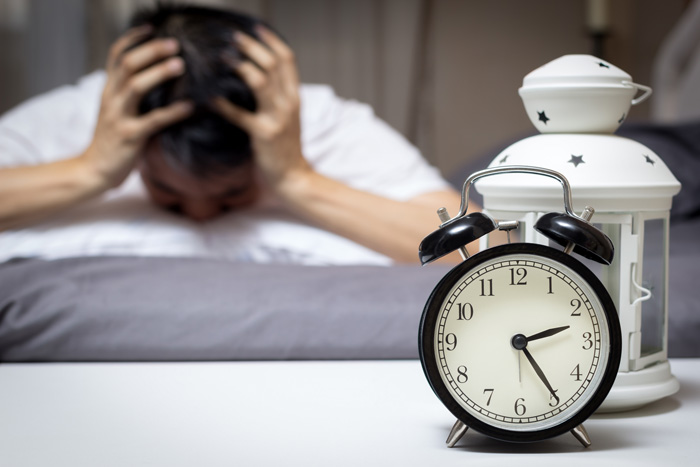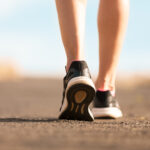Sleep is one of those things that we don’t really think about until it’s gone, and when it’s gone it can feel like the only thing we can think about.
If sleep is a struggle or if you have insomnia while you are in addiction recovery, sleeping pills aren’t really an option. But that doesn’t mean you have to suffer.
The Florida Institute of Technology’s Counseling and Psychological Services emphasize the importance of sleep and describes it as “the body’s way of rejuvenating itself. This process helps replenish the energy stores we have depleted throughout the day, as well as give our organs the opportunity to rest…Lack of sleep can lead to deficiencies in concentration, reaction time, and overall alertness.”
Even if you do not have a history of substance abuse, relying on over-the-counter sleeping aids actually hurts more than helps; not only can it lead to dependence but, as Dr. Buchfuhrer explains, the ‘sleep aid’ in these medications comes from one of the side-effects of antihistamines, which also include “rebound insomnia, anxiety, and dehydration” (Reader’s Digest).
Tonight, try out one or a couple of these natural remedies, tips, and tricks for fighting insomnia:
Certain drinks and foods eaten before bed can help set your body up for a good night’s sleep. Many non-caffeinated, herbal teas can also help, but especially valerian tea: “This herb is found in health food stores, at pharmacies, or from a qualified herbalist, and when brewed into tea, it can reduce the time it takes to fall asleep and produce a deep, satisfying rest” (Reader’s Digest).
In addition to tea, drinking warm milk and honey before bed is a delicious and effective natural remedy for insomnia. Milk increases our brain’s natural sedative, serotonin, and the carbohydrates in honey speed up that process.
Now that you know what you should eat and drink for a good night’s rest, here are some foods and drinks to avoid. FIT recommends that you stop consuming caffeine 3-6 hours before bedtime or else it “can double the time it takes to fall asleep, and quadruple the number of times a person wakes in the night.”
This might sound like a no-brainer, but there are a lot more sources of caffeine than what we typically expect and already avoid around bedtime. For example: decaffeinated coffee, dark chocolate, coffee or chocolate ice cream, energy water, some brands of root beer, Sunkist’s orange soda, cream soda, weight loss pills, and some pain relief medications (Health). Speaking of medication, many prescriptions like “beta-blockers, thyroid medication, decongestants, and certain antidepressants” can also meddle with your sleep cycle, so make sure to talk to your doctor and recovery team about any side effects you are experiencing.
Another natural tip for fighting insomnia is to make sure that your sleeping environment is one that encourages sleep–not just tolerates sleep. According to 6 Things Bedrooms of Good Sleepers Have in Common, a cool dark room is the optimal setting for a good night’s sleep; this would look like simple bedding, pitch-black darkness, and a thermostat set to 65 degrees fahrenheit. Dr. Maas explains that “You want a body temperature where neurons aren’t firing intensely, and that happens when the hypothalamus, the temperature regulator in the brain, is cool.”
Before you go to sleep, turn off the lights and close your curtains, and try to find anything that flashes or shines a small light–clocks, TVs, computers, smoke detectors–and cover them up or turn them away from your bed. Even if you don’t notice them during your sleep, your body might still be sensing them.
Limiting your screen time an hour before bedtime (at the minimum) can also greatly improve your sleep. Dr. Mass emphasizes this point and explains that “these devices put out a lot of blue daylight spectrum light, which blocks the flow of the sleep hormone melatonin and delays sleep onset.” Try switching to a real alarm clock and charging your devices away from your bed or even in another room for just a week to see if you notice a difference.
There are also some tricks you can try when finding the natural remedy that works best for you. Exercising during the day–not too close to bedtime–can decrease the amount of time it takes to fall asleep and improve the sleep itself. And while you’re exercising, try to soak up some sunshine or get exposure to light-therapy, which greatly affects your circadian rhythm (Reader’s Digest).
Finally, developing a routine before bed helps prepare your body for sleep, settle your mind, and get yourself into the habit of getting a good night’s rest. This routine should be tailored to you, but some effective suggestions would be deep breathing, meditation and journaling.










